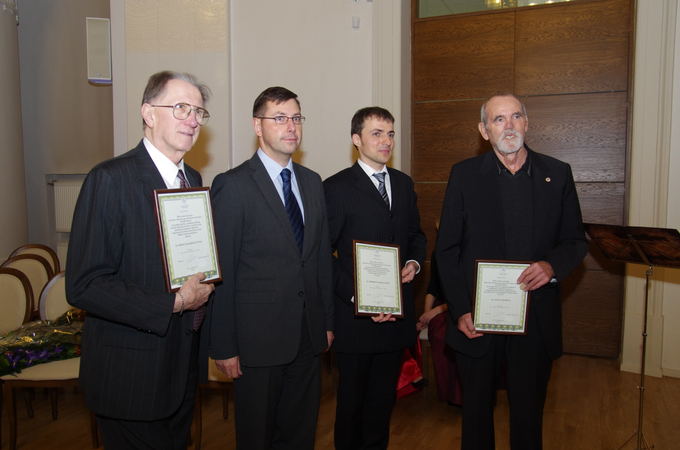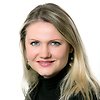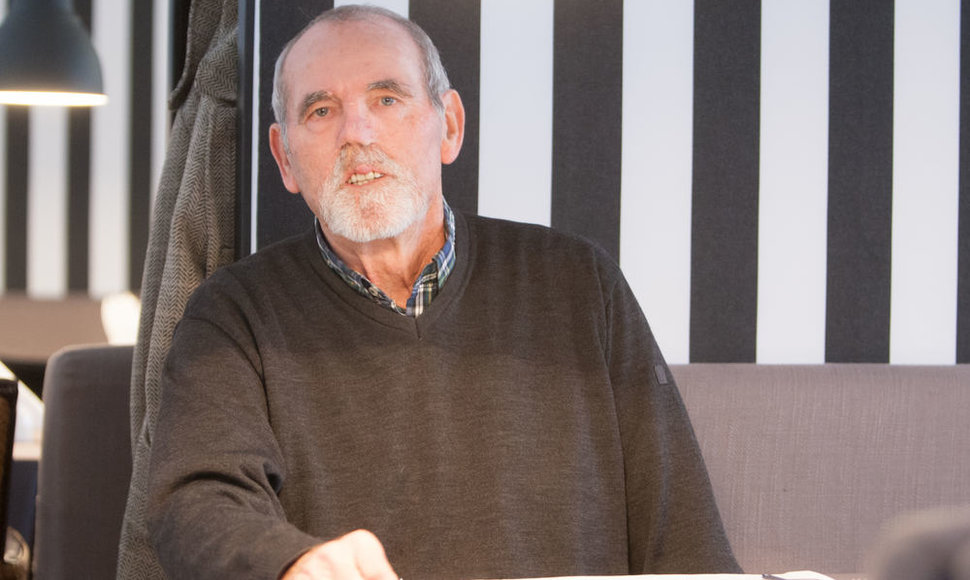Lėnertas, clinical chemistry and diagnostics specialist at Freiburg University Paediatric Hospital, was awarded the Science Prize for his active cooperation with and support for Lithuanian scientist working in the field of hereditary disease diagnostics.
The 75-year-old chemist says he was not even aware he was nominated for the award. It was his colleagues that suggested him to the Ministry of Science and Education. “One day, I received an email. An invitation to come to Lithuania to collect my prize. An awfully pleasant surprise,” says the scientist who lives in Germany.
Family dispersed by war
When Lėnertas discusses his background, he starts off with a joke: “If you asked me if I was a German, I'd say no. A Lithuanian? Again, no. 'What are you then?' you'd wonder. I am a Klaipėda man!”
Lėnertas was born on 9 April 1937 in the port town known alternatively by its German name, Memel. His mother was German, so the family would only converse in that language.
“Ancestry from my father's side moved to Klaipėda region from Salzburg after the Great Plague. The rest were French Huguenots. Both families were chased out of their homeland because of their Protestant faith. True, there are also Lithuanian names among my forefathers, like Pėteraitis, Grauzdys, Girts, etc,” Lėnertas discusses his family tree.
He only spent the first eight years of his life near Klaipėda, in Dumpiai village. In autumn 1944, his mother took four children and fled home to escape the Red Army. His ailing father had already been taken by the German army. As his health deteriorated, he was taken to Denmark and, after Germany capitulated, to Hamburg.
“And we boarded almost the last ship to Copenhagen. We spent about two years in various refugee camps in Denmark. Luckily, with some help from the Red Cross, we located father in north Germany and moved in with him,” Lėnertas recalls.
Klaipėda background came in handy
The family would sometimes daydream about returning home, but the situation prevented them from doing so and forced to settle in a new place. Lėnertas was a bright boy and soon resumed primary school.
“There was no opportunity for a poor refugee kid to go to a higher school,” he says. But then his Klaipėda roots proved to be handy.
“Completely by chance, I discovered that a Lithuanian boarding school was opened in 1950 in Diepholz and that it accepted children from Klaipėda region families, provided they spoke or were willing to learn Lithuanian.”
So he set his mind on proving that he can master the language and go to a gymnasium.
“I was 13, but I knew this was my only chance to change my fate. My brothers and sister did not seek education – they graduated from primary school, learned a trade and enjoyed a working class life. I wanted more,” Lėnertas admits. He first set foot in the Lithuanian gymnasium in February 1951, just before it was named the 16 February Gymnasium.
The only Lithuanian speaker
Lėnertas instantly fell in love with chemistry. “I built small cabinets in courtyards of the residence hall where I'd do my experiments. One such experiment, an attempt to distill phosphorus from urine, resulted in great stench permeating the entire hall,” he laughs.
Lėnertas even skipped the penultimate year at the gymnasium and took graduation exams in 1957. He did particularly well in Science, so he did not deliberate much about what to do next – he started a chemistry course in the University of Heidelberg.
Still a student, he began teaching at the 16 February Gymnasium, first Algebra, then Chemistry and Physics. After graduating with a science degree, he started work in Freiburg University Paediatric Hospital.
“Not only was I the only Lithuanian speaker in the family – I was also the first academic. Until then, everyone in the family had been sailors or artisans. My scientific achievements and warm relations with the hospital management opened for me the possibility to do what I wanted,” Lėnertas says.
10 years to develop a model
The ambitious scientist soon succeeded in setting up the first laboratory in Germany that was working on research and treatment of rare metabolic diseases.
“There was effectively no innate metabolic disease diagnostics in Germany. Physicians at Freiburg children's hospital, if they suspected that their patients might suffer from such a condition, used to send samples to Oslo, London, or the United States. So one colleague suggested I focus my research on it and even gave me a patient, who encouraged me to try and detect as many conditions as possible with one test.
“We set up a lab that became so popular that clinics throughout Germany would send us specimen that we'd test,” he says. Lėnertas, who specializes in diagnostics of innate metabolic diseases, especially organic aciduria, ran the lab for many years. He says it took a decade to come up with an effective model for diagnosing innate metabolism disorders.
Looking for links to Lithuania
The Freiburg hospital laboratory gradually acquired fame outside Germany, too, in Hungary and Austria.
Lėnertas began looking for ways to establish links with Lithuania's scientists as well. An opportunity presented itself in 1980 in Munich, where he met a young Lithuanian physician who was working in cardiology.
“I told him about my speciality and asked is he could find a physician or a scientist in Lithuania who would be interested in my work,” Lėnertas recalls.
He was soon contacted by Professor Elena Birutė Puodžiūnienė who headed the Paediatrics Unit at the Experimental and Clinical Medical Research Institute of the Lithuanian Health Ministry.
“After a short correspondence, I was invited for a two-week visit at the institute in 1981 – to give lectures to paediatricians and biochemists who specialised in my area or research.”
Such was the start of Lėnertas' cooperation with Lithuanian medics. Thanks to his efforts – and often funds, too – a number of Lithuanian scientists were invited to training sessions in Germany.
Relations between universities of Freiburg and Vilnius had a new lease of life after Lithuania regained independence. Freiburg scientists would do tests for Lithuanian children free of charge.
Lithuanian sympathies through grandchildren's names
Lėnertas retired from work ten years ago, but he continues to take part in science conferences and gives lectures. He intends, however, to pass this task to younger colleagues soon.
His two children, Algis and Birutė, do not speak Lithuanian, but they feel attachment to the homeland of their father. Two of five of his grandkids were given Lithuanian names, Indre and Dale.
“When Birutė was expecting, she asked me to send her a list of Lithuanian names and picked two she liked best. 11-year-old Indre joined me and my wife for our trip to receive the prize. She loves Vilnius.”
He says he could never relinquish his roots. “One can emigrate, but not sever all ties. I think, once you leave, it is very important to get involved in Lithuanian community life, interact with people, attend events,” Lėnertas believes.
He is still an active member of Germany's Lithuanian community, he has been elected to its board many times. He also keeps in touch with the 16 February Gymnasium.
“I once taught one Lithuanian pupil in the gymnasium, who later came to Lithuania to work in a company named 'Fermentas.' See, everything is interrelated in this life,” he grins.
 |
| Renatos Česnavičienės nuotr./Science Prize winners Romualdas Kriaučiūnas, Skirmantas Kriaučionis, and Vilius Lėnertas with Science and Education Minister Gintaras Steponavičius (second left) |













